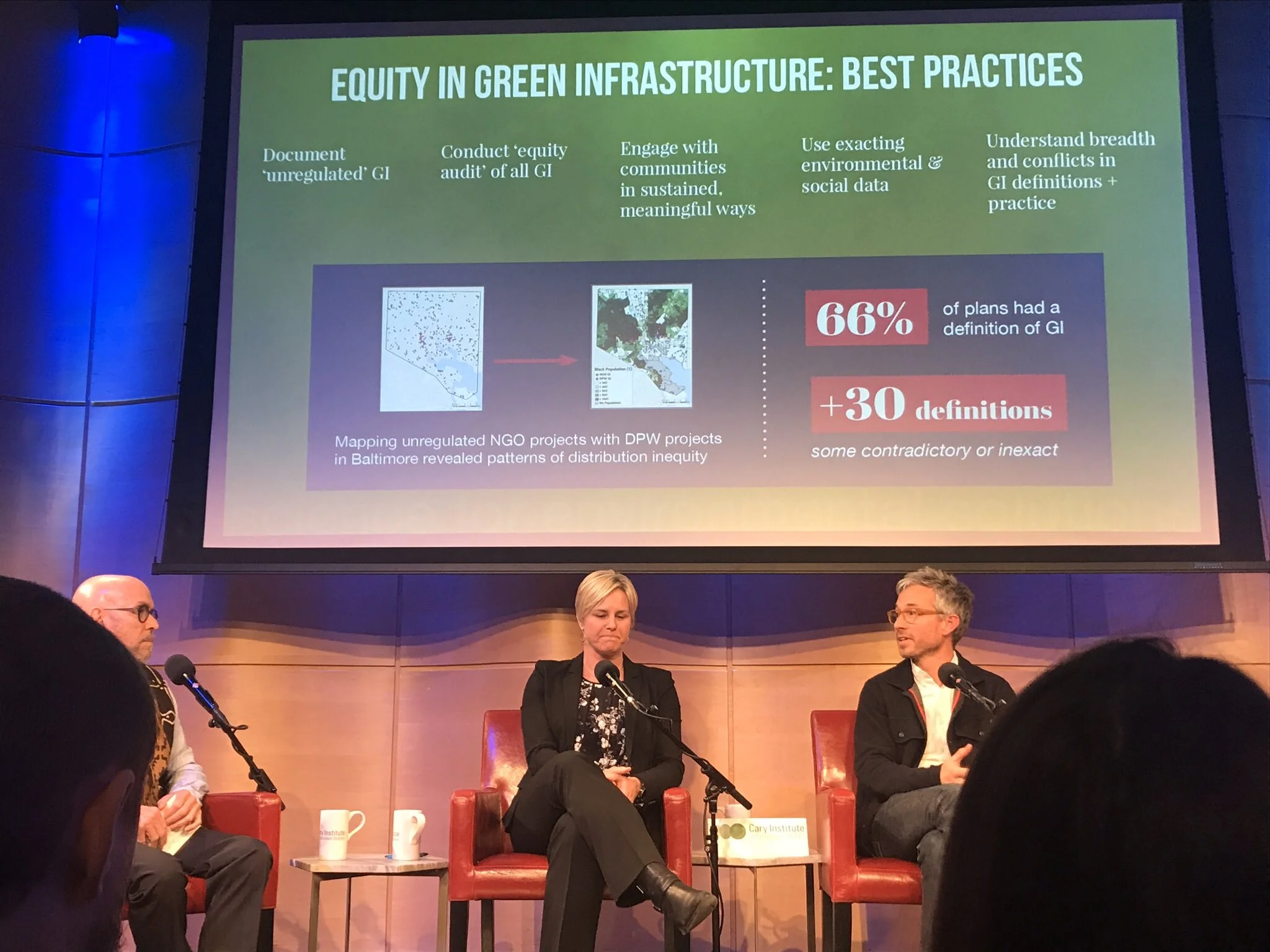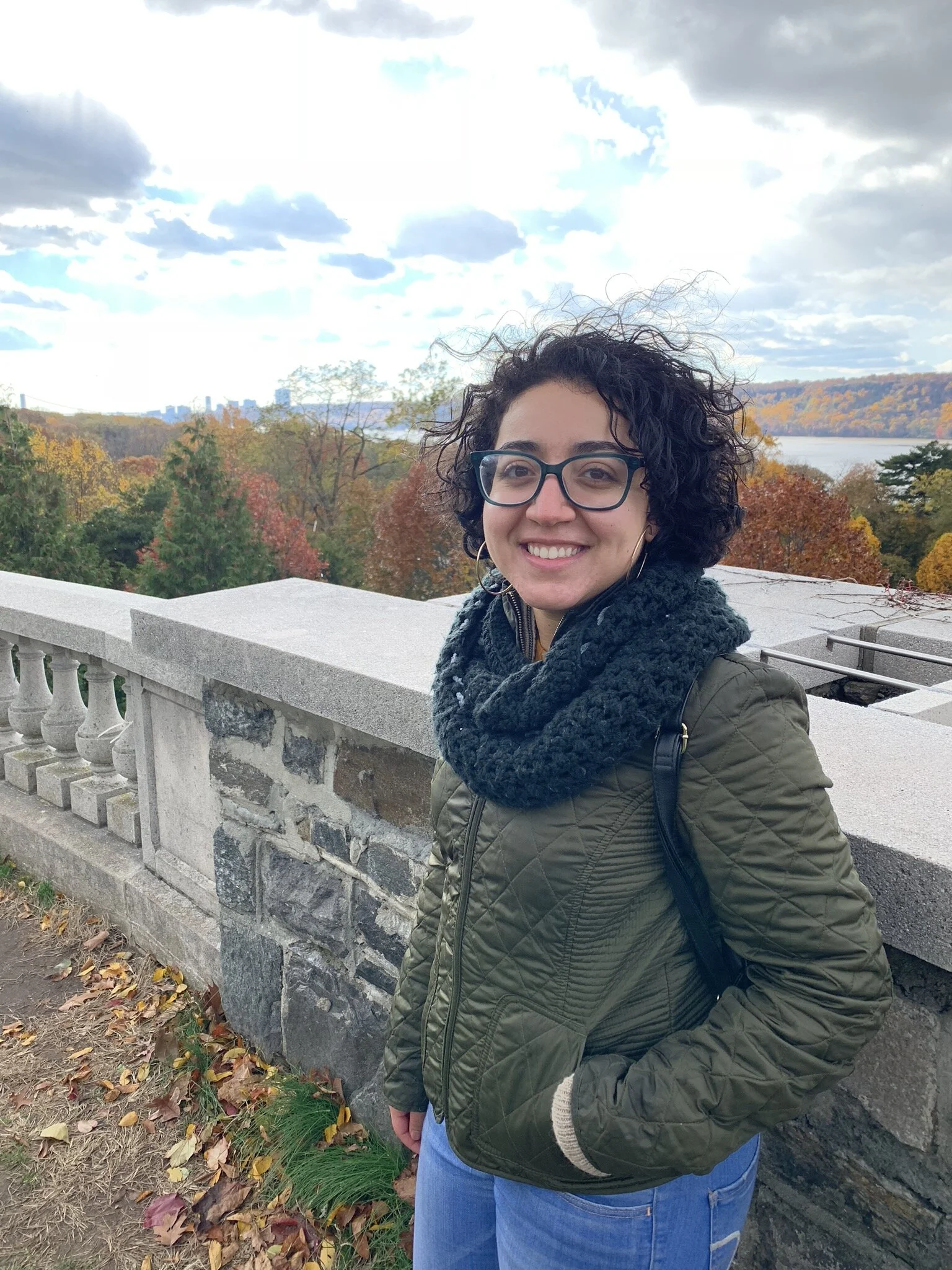There is so much we don’t yet know about COVID-19, but there is evidence the virus is especially deadly for those who live in neighborhoods with elevated air pollution. This environmental reality is almost certainly contributing to the disproportionately higher number of COVID deaths in Black and Latinx communities.
Read MoreIn the midst of the pandemic and social distancing measures, many organizations have had to transition from their in-person programming to a virtual model, while others actually created special programming to address the crisis and how it relates to their mission and communities they work with. These virtual spaces have become a great avenue for coming together, learning, discussing, and organizing. While the stream of new interesting programming can be hard to keep up with live, we wanted to put together a list of recorded webinars the Tishman Center team has tuned into or wished we did.
Read MoreLIC Relief was founded March 13, 2020 by Kelly Craig and Patrick Thompson. They called upon local civic, religious and business organizations to work together to alleviate food insecurity needs in Western Queens neighborhoods and surrounding areas due to the Covid-19 crisis. Our model is two-pronged, meal distribution in partnership with local restaurants and operating a dry goods food collection site.
Read MoreIn terms of infrastructure, the Project will have a traditional Haudenosaunee longhouse, which is the sisters’ first goal. Traditionally, longhouses are infrastructures in which usually more than one family, if not a whole clan would live in. Usually, longhouses are built “with pole frames and elm bark covering” but for this project, the three sisters are planning to build it with hempcrete, thanks to a collaboration with Escher Design, Inc. an architectural firm based in Dorset, Vermont. According to Alex Escher, Director of Hemp Development at Escher Design, hempcrete has several benefits which will make the 3SSP Longhouse an example of more sustainable housing. “Hemp has the fastest CO2 to biomass conversion ratio found in nature, even more than agroforestry, as well as hempcrete, which also sequesters more CO2 than is emitted during its production.
Read MoreThe Tishman Center has had to cancel our extensive Earth Month programming in light of the social distancing measures and our responsibility to provide spaces for our community. However, we believe it is crucial to still find creative ways of coming together and sharing perspectives around the moment in time we find ourselves in and how it relates to the underlying injustices that have threatened vulnerable communities before the pandemic and now becoming a threat multiplier.
Read MoreOn November 23rd 2019, not too far from New York City, The Three Sisters Sovereignty Project was launched by three resilient Kanien’kehá:ka (Mohawk) women: Katsitsienhawi Iakoskarewake (Tiffany Cook), Teiohontáthe Iakoskarewake (Fallan Jacobs), and Kawenniiosta Iakohthahiónni (Kawenniiosta Jock) from the Mohawk Nation of Ahkwesasne (or Akwesasne) which straddles the borders of Ontario, Quebec and northern New York
Read MoreOn March 2nd 2020, the Milano Whole Earth Taskforce, made up of students, faculty, and staff, brought together The New School community for a Climate Emergency Teach-In. Leonardo Figueroa Helland and Mindy Fullilove, the faculty members behind the event, are recipients of a 2019-2020 Tishman Center Faculty Grant and the teach-in was created as part of their “Whole Earth” Curriculum project. Génesis Abreu, a current Environmental Policy and Sustainability Management student, was invited to join the Whole Earth Taskforce as a research assistant and has been key in bringing the project to life.
Read MoreWhile we live in an era that will most likely be shaped by the climate crisis, right now the focus is on coronavirus, which has turned the world into a very different place in a very short time. However, climate change is not sitting down and waiting patiently until we’re done dealing with the coronavirus. It continues to be an existential threat to humanity, even if short-term decrease in activity may slow it down. In a way, it is accompanying the coronavirus like a shadow, challenging us to consider it in every step of the way. The challenge, as we will see, is not only to remind ourselves that the climate crisis is here, even if we deal with another emergency, but also to learn the lessons from the coronavirus and figure out how to apply them to the fight against climate change.
Read MoreEach session will run about 45mins long with plenty of time for Q&A. Bring your expertise and your questions to the table and learn from experts on these topics, from professionals, researchers, and activists. Participants have the opportunity to critically discuss the connections between theory and practice, between the challenges ahead and the promises of current developments (or lack thereof), and of the different kinds of work we are called upon by the multiplicity of sustainability crises. A recurring question will be whether there truly is a trade-off between profitability, risk, and considerations for the planet and people.
This webinar is the second online conference on Sustainability and Finance organized and supported by oikos International and the Harvard Extension School's Student Environmental Club.
Read MoreIn light of the novel coronoavirus and adhering to The New School’s response, The Tishman Center will be postponing, altering or cancelling a number of our events in April, including our Earth Week programming. We will provide updates about what we will have in lieu of our regular programming, but we feel that it is in the best interest of everyone to avoid hosting events with large groups of people until it is safe to do so. In the words of the Climate Justice Alliance, “ [The novel] Coronavirus is here and is a litmus test for how the climate crisis will destabilize markets, open opportunity for disaster capitalism, disrupt global supply chains, and expose inadequate or failing systems like our healthcare system.”
Read MoreIs green infrastructure fair? How can it be developed in a way that ensures equity rather than perpetuates the profound injustices that are in the foundation of most urban areas? Those were some of the questions discussed at the Cary Institute of Ecosystem Studies event on the fairness of green infrastructure, where three panelists, including Tishman Center’s Affiliated Faculty and Director of Urban Systems Lab, Timon McPhearson, provided their takes on the biggest challenges and promises of equitable green infrastructure.
Read MoreThe Tishman Center recently released a new report titled Environmental Justice Movement: Priorities, Strategies & Just Transition. The report is a product of an invitation made by the Northlight Foundation in 2018 to explore leadership models that would be well suited to support the Environmental Justice Movement and its efforts to tackle climate change and inequality. Before beginning to design the program, the team wanted to hear directly from the EJ movement about current conditions, needs, and visions for the future of movement impact. We wanted to learn what leaders would hope to gain from a fellowship program.
Read MoreDr. Stephanie Gripne is a Visiting Scholar at The Tishman Center and the Founder and CEO of Impact Finance Center, a multi-university nonprofit academic center that identifies, trains, and activates individuals and organizations to become impact investors, helping them better align their assets with their values. Impact investing directs capital to enterprises, organizations, and funds that generate social or environmental benefits alongside a financial return, which traditional business models tend to side step.
As part of her collaboration with the Tishman Center, Dr. Gripne will be teaching a series of courses on impact investing at The New School in March. All four courses are free and open to the public. Please read on to learn more about each course and sign up while space is still available.
Read MoreKevin McQueen has been a part-time lecturer for the Community Development Finance Lab at the Milano school since 2011. Kevin has an extensive background in corporate and community development finance and is a partner at a national consulting firm (BWB Solutions) that specializes in impact investing strategies and nonprofit planning and governance.
The Community Develop Finance Lab course engages students in a project-based curriculum with the following components: classroom instruction, student teams, interdisciplinary engagement across the university, guest lectures, networking.
Read MoreThe Earth is facing a climate emergency. Globally, seas are rising, coastlines are eroding, weather patterns are changing, floods, droughts, and forest fires are increasing, and species extinction is rising exponentially. The climate crisis and the threat it poses to life on Earth and frontline communities are among the foremost challenges of our times. As an institution of higher education, it is essential that The New School equip students and faculty with the knowledge, skills, and capability to respond to the challenges ahead.
Read MoreThe beginning of a new decade is a perfect time for some lists of “best” films/ books/ places-to-go-to in the New Year. So, the Tishman Center decided to put together our own list of books published in the past decade that we think are essential in understanding the how’s and why’s of climate change and the systemic injustices that underline it. This list is by no means extensive but contains some of our team’s favorite titles as well as books we look forward to diving into in 2020.
Read MoreThe Tishman Center is very excited to welcome our newest team member, Marouh Hussein. We are in the process of launching an Environmental Justice Movement Fellowship Program for environmental justice (EJ) leaders. Marouh will be instrumental in realizing this fellowship as the Program Manager. Read on to get to know her!
Read MoreAlthough this post is a bit late, we would like to highlight our Program Coordinator, Anna Yulsman (MA, Parsons, ‘19) who works on a number of projects and is a valuable member of our team at the Tishman Center.
Read MoreBrian McGrath, an Associate Director of the Tishman Center and Professor of Urban Design at Parsons, recently co-authored a book titled Patch Atlas, which is a new tool for mapping urban land cover that integrates design principles and ecological knowledge for understanding cities as complex, patchy, and dynamic systems. McGrath also co-authored an article in Science for the Sustainable City which presents key findings and insights from over two decades of research, education, and community engagement in the acclaimed Baltimore Ecosystem Study.
Read MoreEmily Dickinson ‘17 is an Environmental Policy and Sustainability Management Program Alum, who currently works as the Climate and Sustainability Initiative Manager at the Madison Square Park Conservancy.
Read More



![The Three Sisters Sovereignty Project [Part 2]](https://images.squarespace-cdn.com/content/v1/5d14dab43967cc000179f3d2/1586972240890-HL204600AO232XZG1TGJ/Picture2.png)









![[Re-Post] Climate Emergency Teach-In](https://images.squarespace-cdn.com/content/v1/5d14dab43967cc000179f3d2/1581548469565-0H4RSSYRXY4LZK9UNGZV/Screen+Shot+2020-02-12+at+4.23.55+PM.png)




